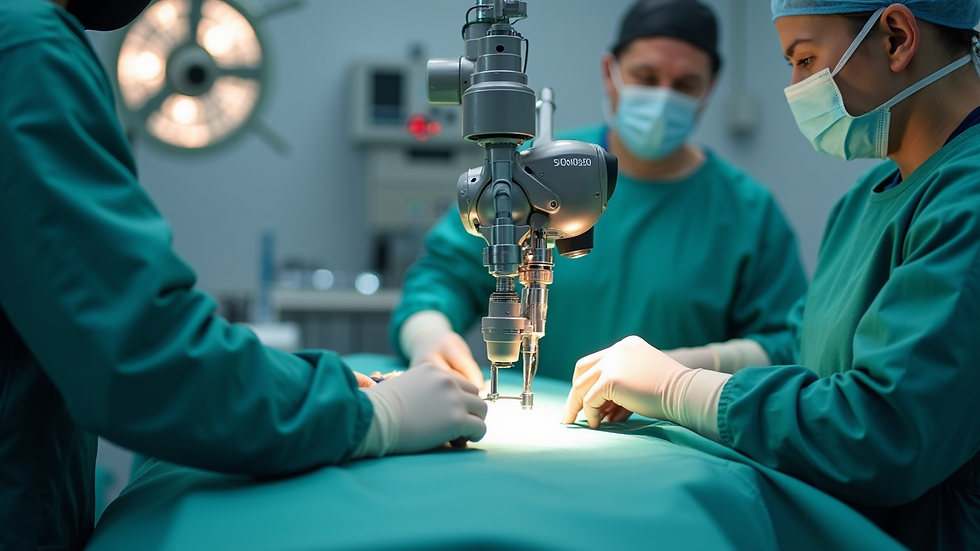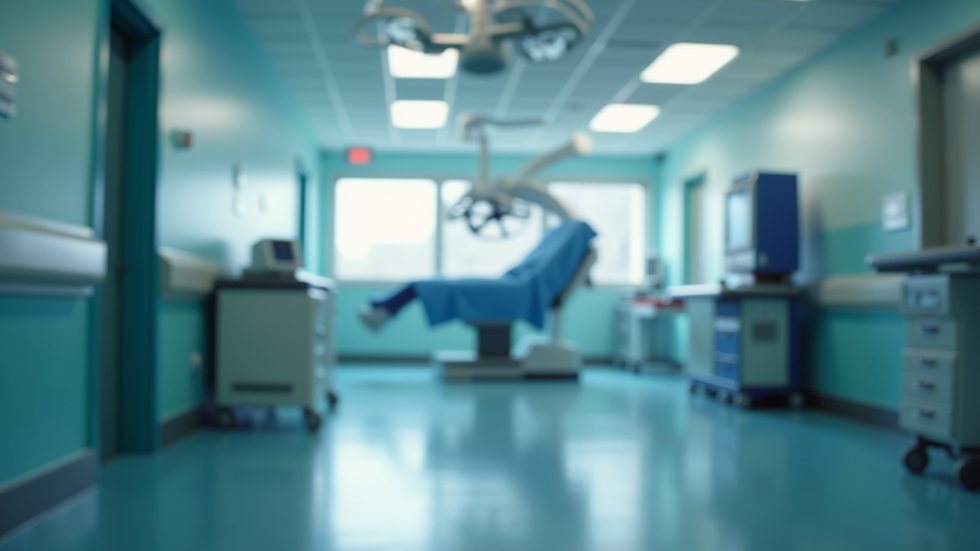Understanding the Types of Breast Cancer
- Anup Sisotia
- Aug 11, 2025
- 4 min read
Breast cancer is a complex disease with many variations. When you or a loved one faces this diagnosis, understanding the different types of breast cancer can help you make informed decisions about treatment and care. In this post, I will guide you through the main types of breast cancer, explain what makes each unique, and share how advanced medical options in India can offer hope and excellent outcomes.
Exploring the Different Types of Breast Cancer
Breast cancer is not a single disease but a group of diseases that originate in the breast tissue. The classification depends on where the cancer starts, how it behaves, and its molecular characteristics. Knowing the type of breast cancer you have is crucial because it influences treatment choices and prognosis.
Here are some of the most common types:
1. Ductal Carcinoma In Situ (DCIS)
DCIS is a non-invasive cancer where abnormal cells are found in the lining of a breast duct but have not spread outside the duct. It is often detected through mammograms and is considered the earliest form of breast cancer. Treatment usually involves surgery and sometimes radiation.
2. Invasive Ductal Carcinoma (IDC)
IDC is the most common type, accounting for about 80% of breast cancers. It begins in the milk ducts and then invades nearby breast tissue. IDC can spread to other parts of the body if not treated promptly.
3. Invasive Lobular Carcinoma (ILC)
ILC starts in the milk-producing lobules and then invades surrounding tissues. It is less common than IDC but can be more challenging to detect on mammograms.
4. Triple-Negative Breast Cancer
This type lacks estrogen, progesterone, and HER2 receptors, making it more aggressive and harder to treat with hormone therapies. However, advances in chemotherapy and immunotherapy have improved outcomes.
5. HER2-Positive Breast Cancer
HER2-positive cancers have too much of the HER2 protein, which promotes cancer growth. Targeted therapies like trastuzumab have revolutionized treatment for this type.
6. Inflammatory Breast Cancer
A rare but aggressive form, inflammatory breast cancer causes redness and swelling of the breast. It requires prompt and intensive treatment.
Understanding these types helps you navigate your treatment options better. If you want to learn more about breast cancer types, this resource offers detailed insights.

Why JCI Accredited Hospitals and Robotic Surgery Matter
When seeking treatment, especially abroad, the quality of the hospital and the expertise of the medical team are paramount. India is home to many JCI Accredited hospitals, which means they meet the highest international standards for patient safety and care.
Choosing a JCI Accredited hospital ensures you receive:
State-of-the-art facilities
Highly trained specialists
Strict infection control protocols
Comprehensive patient support services
One of the remarkable advancements in breast cancer surgery is the use of robotic surgery. Robotic-assisted surgery offers precision, smaller incisions, less pain, and quicker recovery times. Surgeons in India are skilled in these techniques, providing you with the best possible surgical outcomes.
Additionally, India’s expertise in organ transplant and reconstructive surgery means that if your treatment plan includes breast reconstruction, you are in capable hands.

What is the Most Curable Breast Cancer?
Among the various types, Ductal Carcinoma In Situ (DCIS) is considered the most curable form of breast cancer. Since it is non-invasive and confined to the ducts, early detection and treatment often lead to excellent outcomes.
Other invasive cancers, such as hormone receptor-positive breast cancers, also have high cure rates when treated appropriately. The key is early diagnosis and personalized treatment plans.
India offers some of the best treatment outcomes globally due to:
Access to advanced diagnostic tools
Multidisciplinary care teams
Cutting-edge therapies including targeted drugs and immunotherapy
Comprehensive follow-up care
With medical visa assistance services, you can plan your treatment journey smoothly, ensuring you have support from the moment you decide to seek care in India.

How Medical Visa Assistance Enhances Your Treatment Experience
Traveling abroad for medical treatment can feel overwhelming. That’s why medical visa assistance is a vital part of your journey. It helps you navigate the paperwork, appointments, and travel arrangements with ease.
When you choose India for breast cancer treatment, you benefit from:
Streamlined visa application processes
Dedicated coordinators to assist with travel and accommodation
Language support and cultural guidance
Continuous communication with your medical team
This support reduces stress and allows you to focus on your health and recovery. The goal is to make your treatment experience as comfortable and effective as possible.
Embracing the Best Treatment Experience in India
India has become a global hub for medical tourism, especially for cancer care. The combination of world-class hospitals, expert surgeons, affordable costs, and compassionate care creates an environment where patients can thrive.
Here’s what you can expect:
Personalized treatment plans tailored to your cancer type and stage
Access to robotic surgery and minimally invasive techniques
Comprehensive care including chemotherapy, radiation, and reconstructive surgery
Supportive services such as counseling, nutrition advice, and rehabilitation
Transparent pricing and no hidden costs
Choosing India means you are not just getting treatment; you are gaining a partner in your health journey. With companies like Remedazo facilitating your medical travel, you receive end-to-end support, from initial consultation to post-treatment follow-up.
Understanding the types of breast cancer and the treatment options available can empower you to take control of your health. With the right information and support, you can access world-class care in India that offers hope, healing, and the best possible outcomes.




Comments